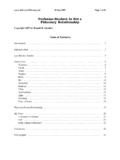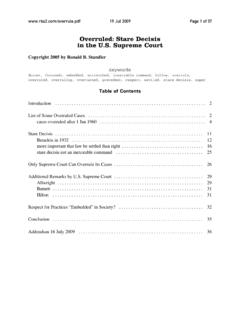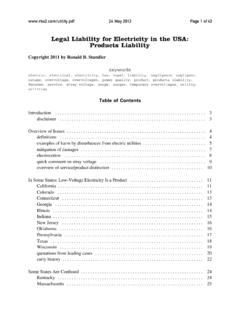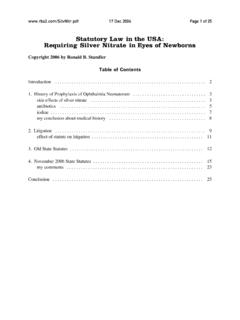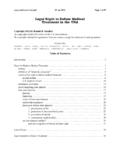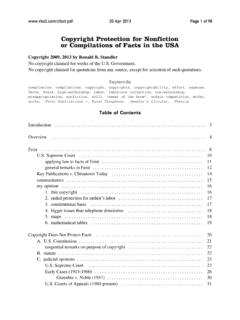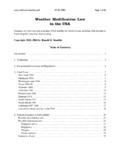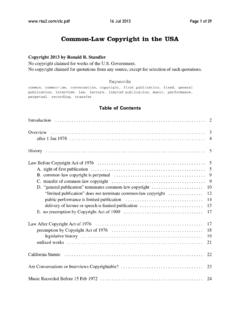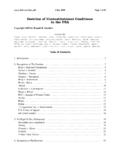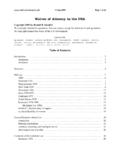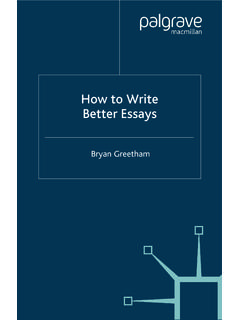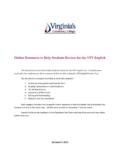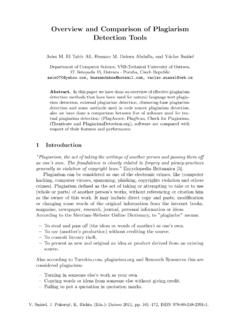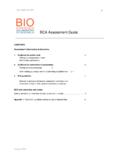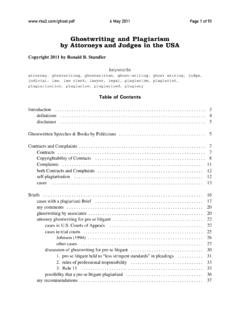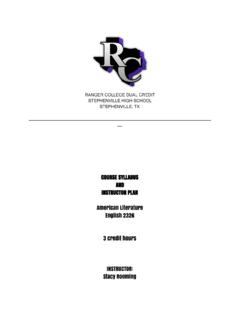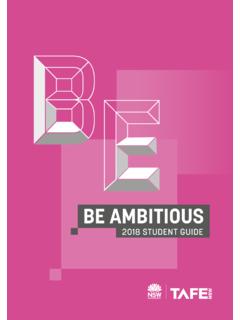Transcription of Legal Right to Have an Attorney at College …
1 Apr 2011 Page 1 of 75 Legal Right to Have an Attorney atCollege Disciplinary Hearings in the USAC opyright 2011 by Ronald B. StandlerNo copyright claimed for works of the copyright claimed for quotations from any source, except for selection of such , advocate, Attorney , College , disciplinary, due process, Esteban, Jaksa,lawyer, represent, school, state action, student, university, WassonTable of ContentsIntroduction .. 3disclaimer .. 3 Overview .. 4history .. 5disciplinary vs. academic .. 5pupil vs. student .. 7why attorneys are persona non grata at colleges.
2 8 Cases: No Attorney Required at Private College .. 10 Coveney (1983) .. 10 Beilis (1988) .. 10 Okafor (2004) .. 10 Kimberg (2009) .. 11conclusion for private colleges .. Supreme Court on Due Process .. 14 Goldberg v. Kelly ( 1970) .. 15 Goss ( 1975) .. 16 Mathews v. Eldridge ( 1976) .. 18 Bethel ( 1986) .. 19 Cases: at State College .. 20 Dixon (1961) .. 20attorney permitted at state colleges .. 23 Esteban (1967) .. 23 General Order (1968) .. Apr 2011 Page 2 of 75 Zanders (1968).
3 26 Moore (1968) .. 27 Keene (1970) .. 27 Givens (1972) .. 27 Black Coalition (1973) .. 28 North (1977) .. 29 Nash (1985) .. 32attorney not allowed at state colleges .. 33 Wasson (1967) .. 33 Madera (1967) .. 33 French (1969) .. 34 Grabinger (1970) .. 37 Garshman (1975) .. 37 Henson (1983) .. 39 Mary M. (1984) .. 41 Hall (1984) .. 42 Jaksa (1984) .. 43cases approving of Jaksa .. 46 Gorman (1986) .. 46 Miami University (2002) .. 48when also future criminal prosecution.
4 48 Furutani (1969) .. 49 Nzuve (1975) .. 49 Gabrilowitz (1978) .. 50 McLaughlin (1983) .. 55 Coleman (1992) .. 56 Osteen (1993) .. 56 Flaim (2005) .. 58 Coulter (2010) .. 59 Stigma requires due process .. 61 Professor dismissed .. 63 Potted Plant .. 64 Indigent students not entitled to no-cost Attorney .. 65 Law Review Articles .. 67 Discussion .. 69view of professors .. Apr 2011 Page 3 of 75view of accused .. 69idealism .. 70cost .. 70no bias in colleges?.
5 71futility .. 71 Conclusion .. 73 List of Law Review Articles .. 74 IntroductionDoes a student who is accused by a College of some kind of misconduct ( , cheating,plagiarism, fraud, violation of College rules, ..) have the Right to bring an Attorney on campus tohearings or other disciplinary procedures? If yes, then does that Attorney have the Right to representthe accused ( , cross-examine witnesses), or is the Attorney confined to some limited role ( ,observer, whisper in the ear of the accused)? Attorneys who are not specialists in education lawmay assume wrongly that academic procedures are similar to criminal law.
6 This essay is concerned with Legal rights of students in both state colleges and private colleges,but not concerned with Legal rights of pupils in high school and below. However, I mention a fewschool cases that have been frequently cited in cases involving colleges. Most of this essayconcerns students accused of misconduct, but I do have a brief discussion of professors deniedtenure, at page 63. disclaimerThis essay presents general information about an interesting topic in law, but is not legaladvice for your specific problem. See my disclaimer at.
7 From reading e-mail sent to me by readers of my essays since 1998, I am aware that readers oftenuse my essays as a source of free Legal advice on their personal problem. Such use is notappropriate, for reasons given at .I list the cases in chronological order in this essay, so the reader can easily follow the historicaldevelopment of a national phenomenon. If I were writing a Legal brief, then I would use theconventional citation order given in the Bluebook. Because part of the audience for this essay isnonlawyers, I have included longer quotations from court cases than typical writing for or their attorneys should not rely on this essay for Legal research.
8 In researching thisessay, I concentrated on cases in the Courts of Appeals and state supreme courts, as well asfrequently cited cases from District Courts. This essay also emphasizes cases in Apr 2011 Page 4 of 75northeastern USA. This essay does not contain a comprehensive list of all cases in the USA. Of course, this essay does not include any cases decided after I finished my searches of Westlawfor this topic in January 2011. OverviewThe federal government operates several military academies and postgraduate schools, butthose institutions involve a tiny fraction of the students enrolled in colleges in the USA.
9 State andlocal governments operate many universities and community colleges. For the purposes of thisessay, I use the phrase state College to refer to a College operated by any government: federal,state, or local, by analogy with state action in constitutional colleges are constrained by the Fourteenth Amendment to the Constitution, whichsays: .. nor shall any state deprive any person of life, liberty, or property without due process oflaw; .. We can ignore life, liberty in that quote, because state colleges neither impose thedeath penalty nor imprison anyone.
10 The possibility of deprivation of property ( , suspending astudent in mid-semester thus forfeiting his tuition payment, revoking an academic degree,terminating employment of a tenured professor) can implicate due process in the14th Sixth Amendment to the Constitution says In all criminal prosecutions, the accusedshall enjoy the Right .. to have the assistance of counsel for his defense. Disciplinary proceedingson a College campus are not criminal prosecutions, therefore the Sixth Amendment does not applyto disciplinary hearings on a College campus.
